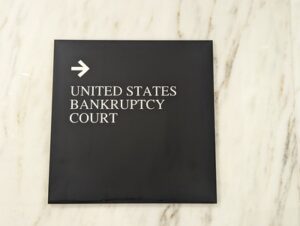Beginning in July, the Biden Administration’s gainful employment and financial value transparency rules take effect. The rules apply broadly, but not every institution has programs that meet the definition of a gainful employment (GE) program.
The gainful employment rules aim to regulate non-degree programs at both public and private institutions. This is because federal financial aid rules require that Title IV funds pay for either degree programs or programs that lead to “gainful employment in a recognized occupation.”
To test whether a non-degree program meets the “gainful employment” test, the Biden Administration has applied new standards to non-degree programs offered at public and private, non-profit institutions and all programs offered at private, for-profit schools. Degree programs do not need to meet the gainful employment tests. (Which, in some ways, is too bad because there are a lot of seriously under-performing degree programs out there.)
Under the new rules, gainful employment is defined as employment that enables a person to exceed established earnings thresholds within two years of completion of the program. These thresholds are tied to the average earnings of a high school graduate. If a person who completes a non-degree program can’t outearn a high school graduate within two years, the program is deemed to fail the gainful employment test. If the program fails a test twice in any consecutive three year period, the program will no longer be eligible to dispense federal financial aid to program enrollees.
The Department of Education’s ultimate goal is to weed out non-degree programs that don’t result in an identifiable increase in earnings soon after completion.
Gainful employment fallout could reach beyond WCC
This rule involves some risk for WCC, which went all-in on certificates over the last 15 years. WCC issues more certificates than any other Michigan community college. And not by a little bit, either. WCC has two certificate programs for each degree program. This strategy has resulted in WCC being reclassified as a “certificate school” by the Department of Education. And that puts it in the crosshairs of the Gainful Employment rule.
WCC must start collecting and submitting data on former students who have completed its certificate programs. In 2025, it’s going to become very difficult to hide performance failures among these programs.
It also means that the first hammers start dropping on or after July 1, 2026. When these non-degree certificate programs are required to prove their worth, it will be interesting to see how many of these programs survive.
This doesn’t just pose a problem for WCC. WTMC students become eligible to graduate from high school when they earn an associate degree or a non-degree certificate. If WCC must drop a large number of its current certificate programs, the path that WTMC students can take to graduate from high school will narrow similarly.
How much is it going to cost to develop new programs to replace the ones that don’t pass muster? And what happens to people whose certificates are retroactively declared worthless? Can they get their money back? Can they sue?
The truth is that WCC should be monitoring its degree and certificate programs for economic viability at all times and regularly dropping those that don’t deliver. That’s just taking care of business. Unfortunately, it takes Title IV threats to get WCC and schools like it to collect the data required to validate minimal performance.
Photo Credit: CJS*64 , via Flickr



























